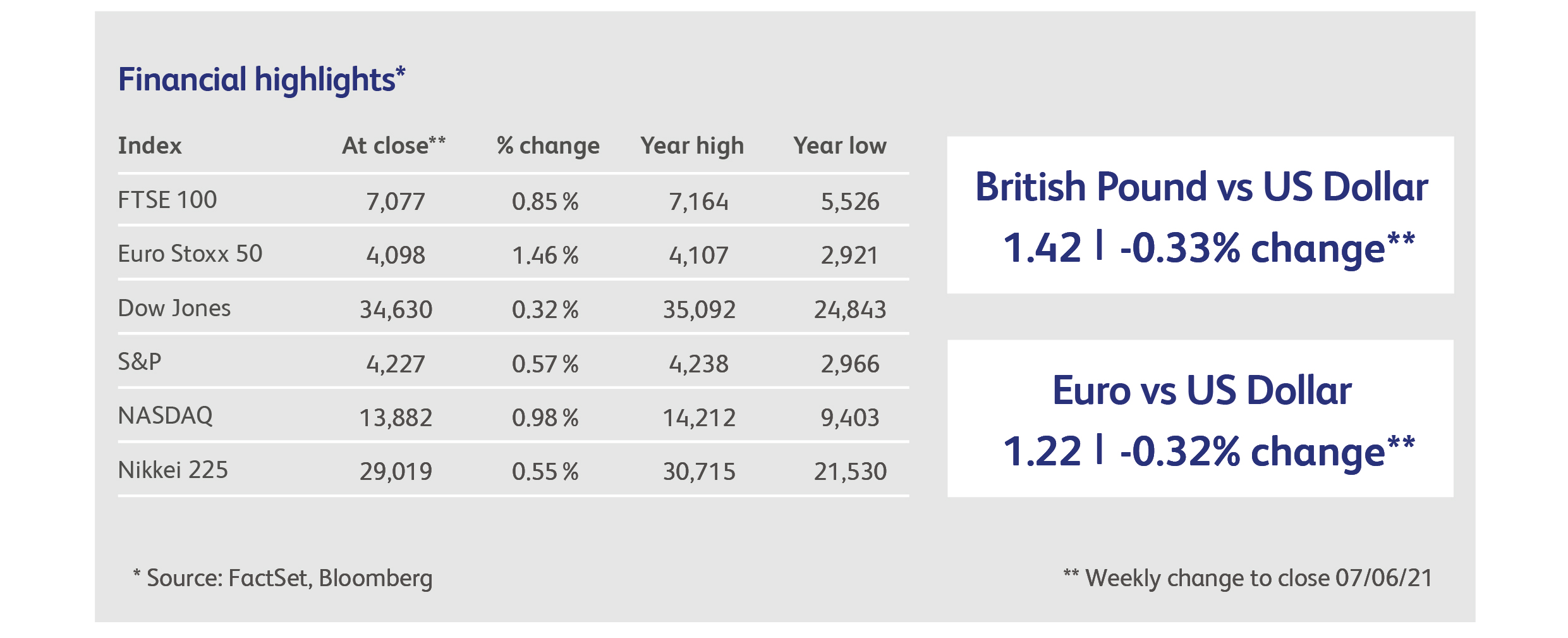
8 June 2021
One small but important support mechanism for capital markets in the post-pandemic world is about to be wound down by the US Federal Reserve Bank (the “Fed”). The central bank announced last week that it would start to sell the $13.7 billion portfolio of corporate debt acquired through its “Secondary Market Corporate Credit Facility”. Whilst small in size compared with the bank’s purchases of government bonds, this was the first time that the US central bank had purchased securities issued by private corporations. It signalled to markets that the Fed would directly bail out lenders in the private sector if needed, prompting a ferocious rally in nearly every corner of the bond market, leading a record-breaking $2.3 trillion of bond issuance by US companies in 2020. Immediately prior to the announcement of the facility on March 23rd 2020, investors had withdrawn a record $54 billion from US bond funds in the space of just a week, and the Fed is credited with having broken the vicious cycle of defaults in one industry leading to defaults in others and, ultimately, in the banking sector.
But some argue the Fed paid a terrible price: in committing to bail out securities issued by listed companies, it effectively put a safety net under all capital markets, and may have contributed to the inflated valuations now apparent in most sectors and asset classes. After all, is there any reason to think the Fed wouldn’t step in again if debt markets seize up? And, if it can be done for debt markets, surely equities would be next?
Last week’s UK government data on the usage of the furlough scheme caused a moment of pure consternation. Although the trend in furloughed workers is down, from 4.3 million in March down to 3.4 million in April (representing about 11% of total UK “employment”), usage of the scheme remains high in sectors that have already recovered from the pandemic. For example, 14% of workers in the wholesale and retail sector were still furloughed, despite retail sales volumes having surged to 10% above their 2019 average. The same can be said for manufacturing and construction companies. If they don’t need all their staff when they’re already firing on all cylinders, when will they ever need them? Either furlough money has given firms a risk-free way of attempting to manage with a slimmer workforce, or… could it be that furloughed staff are not all sitting tight at home?
The pandemic has shifted the focus of investors so much that, despite being preoccupied with the deterioration in US trade relations with China throughout 2019, the rapid downward spiral since then has largely been ignored. President Biden put another nail in the coffin last week with a ban on investment in a blacklist of Chinese companies with ties to China’s military; US investors will be given one year to divest any holdings. The legislation was a continuation of an initiative started by President Trump, but Biden has taken it a step further, adding more companies to the list and strengthening it against legal challenges. With so many cracks appearing between China and the US, and with so many Chinese companies either explicitly or implicitly tied to government entities, the blacklist could get a lot longer.

Tesla shares tumbled on a report from a tech news company that the electric car maker’s Chinese orders dropped to about 9,800 in May from more than 18,000 in April. On the same day, an analyst at Credit Suisse said Tesla’s market share in global electric-vehicle sales had dropped in China, Europe and the US during April. Finally, the company was hit by safety recalls of vehicles on back-to-back days. Dip-buyers were very much in evidence, however, as the stock, which is down more than 30% from its peak, had recovered by the end of the week.
The internet-driven, retail trading frenzy is back with a vengeance. On Wednesday last week, shares of loss-making cinema chain AMC Entertainment Holdings rocketed to an all-time high in a wild trading session, rising as much as 127% at one point, before closing at a record high, up about 3000% for the year to date. As a result, AMC is now the biggest company in the Russell 2000 Index of small listed US companies, more than four times bigger in market value than the next biggest constituent.
Alphabet Inc.'s Google has agreed to pay French regulators a fine of nearly $270 million, settling one of the first antitrust cases the company faces globally. Google faces numerous antitrust cases around the world that allege the tech company abused its leading role in the digital advertising sector. As well as the fine, the French competition authority said it had also accepted a series of proposed commitments from Google, including promises to make it easier for competitors to use its online-ad tools.
Highlights
Calendar
This publication is intended to be Walker Crips Investment Management’s own commentary on markets. It is not investment research and should not be construed as an offer or solicitation to buy, sell or trade in any of the investments, sectors or asset classes mentioned. The value of any investment and the income arising from it is not guaranteed and can fall as well as rise, so that you may not get back the amount you originally invested. Past performance is not a reliable indicator of future results. Movements in exchange rates can have an adverse effect on the value, price or income of any non-sterling denominated investment. Nothing in this document constitutes advice to undertake a transaction, and if you require professional advice you should contact your financial adviser or your usual contact at Walker Crips. Walker Crips Investment Management Limited is authorised and regulated by the Financial Conduct Authority and is a member of the London Stock Exchange. Registered office: Old Change House, 128 Queen Victoria Street, London, EC4V 4BJ. Registered in England number 4774117.
Important Note
No news or research content is a recommendation to deal. It is important to remember that the value of investments and the income from them can go down as well as up, so you could get back less than you invest. If you have any doubts about the suitability of any investment for your circumstances, you should contact your financial advisor.